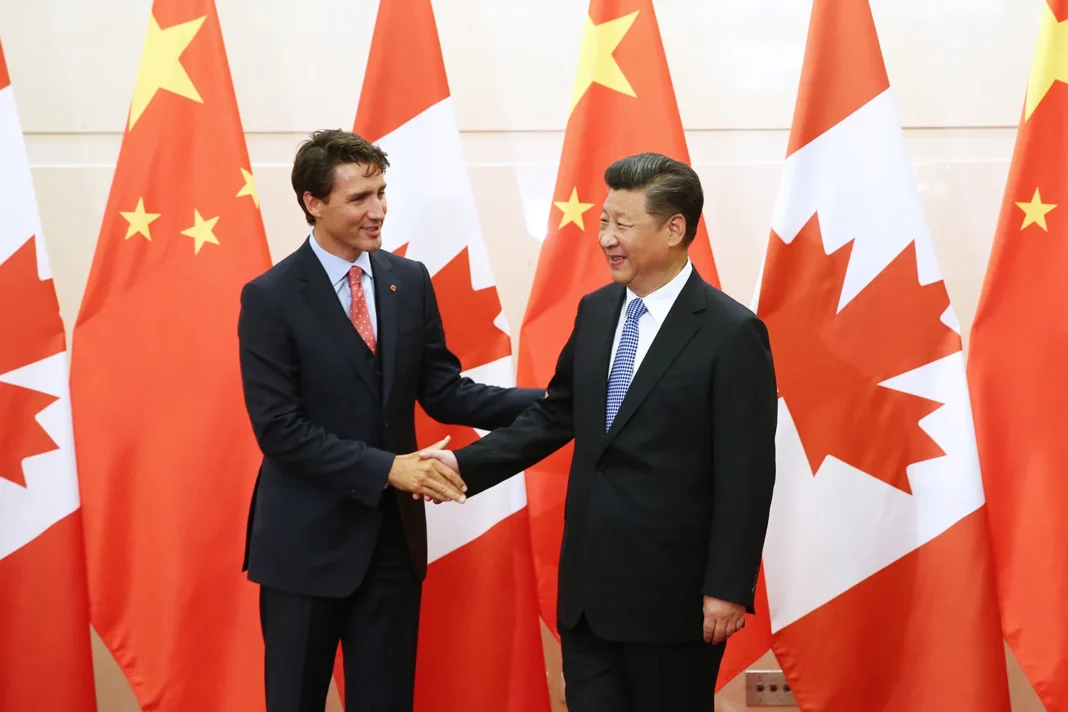China’ interference in democratic processes is not a new affair. Beijing’s sophisticated operations to influence elections across the world have been known to cast serious aspersions over the democratic integrity of a free and fair election.
More recently, reports of Beijing’s covert activities aimed at manipulating Canadian federal elections have ignited a political firestorm, revealing significant gaps in the safeguarding of Canada’s democratic institutions.
The scope of China’s influence operations in Canada have been both alarming and sophisticated. According to sources, Chinese officials have reportedly funnelled funds to at least 11 candidates during the 2019 federal election through intermediaries. High-level memos from Canadian intelligence agencies also revealed that Beijing’s strategy involved covertly supporting candidates sympathetic to Chinese interests, with the ultimate goal of influencing Canada’s foreign policy decisions.
It is important to understand that diplomatic victories are critical for Beijing, as they seek to leverage Canada’s influence on the global stage through its alliance networks. The fact that tense efforts have been exposed in Canadian politics suggests a broader pattern of China’s covert interference tactics targeting democracies worldwide, and Canada seems to be at the heart of this strategy.
The Trudeau Government’s Lacklustre Response
Despite the glaring evidence, Canadian Prime Minister Justin Trudeau’s administration has been criticized for its tepid response. Even though Trudeau himself acknowledged China’s interference while referring to it as part of the “aggressive games” that foreign powers play, actionable responses have rather remained stagnant. Whatever actions taken so far, such as vague promises of increased scrutiny, have been viewed as insufficient and reactionary.
Moreover, the Trudeau administrations reluctance in initiating a public inquiry despite pressure from opposition parties and the public indicates a back-handed reluctance in initiating probes against the Chinese interference so far. Critics argue that the government’s failure to act decisively has allowed China to exploit Canada’s political system, potentially altering the outcome of key elections, in effect also favouring the current administration. This failure has not only undermined Canada’s democratic process but has also raised severe concerns over the country’s sovereignty.
Furthermore, the administration’s failure in fulfilling its most fundamental duty of protecting Canada from foreign interference has further hampered its bid for re-election. The revelations of meddling in Canadian elections have not only exposed serious lapses in national security but have also severely damaged the credibility of Trudeau’s leadership, both domestically and globally. The lack of decisive action, even after repeated intelligence briefings warning of foreign interference, has raised questions about the government’s commitment to safeguarding democratic integrity. Domestically, the failure to launch a public inquiry or enforce stricter measures against foreign actors has led to declining public trust in the administration’s ability to protect Canadian sovereignty.
Internationally, Canada’s image as a stable democracy has taken a hit, with allies questioning Ottawa’s ability to uphold democratic norms amidst increasing geopolitical tensions. This failure has not only emboldened foreign actors like China but has also cast a shadow over Canada’s role in global democratic alliances. The erosion of trust is not merely a domestic issue but a blow to Canada’s standing in the international community, which expects stronger measures from one of the world’s leading democracies. As Trudeau seeks to rebuilt, the onus is on his administration to implement transparent and robust mechanisms that can effectively counter Chinese interference and restore faith in the country’s political system.
An often-overlooked aspect of China’s influence campaign is its pressure on the Chinese diaspora in Canada. According to a report by the Centre for International Governance Innovation (CIGI), Chinese authorities have been using intimidation tactics against members of the Chinese-Canadian community to suppress dissent and coerce support for Beijing’s political agenda. This involves not just financial incentives but also the establishment of clandestine “police stations” on Canadian soil aimed at monitoring and controlling Chinese nationals abroad.
Consequences for Canadian Democracy
The implications of China’s interference extend beyond immediate political gains. By influencing Canadian elections and coercing support through diaspora communities, Beijing has effectively aimed to reshape Canada’s foreign policy to align more closely with its own strategic interests. This tactic has not only compromised the integrity of Canadian democracy but has also risked pushing the country into a sphere of influence dominated by authoritarian regimes.
The Trudeau government’s failure to take substantial action has only emboldened these external actors. The leaks from the Canadian Security Intelligence Service (CSIS) and the lack of a robust response from Ottawa expose significant vulnerabilities in Canada’s national security infrastructure.
Nevertheless,to address the onset of a serious China challenge, Canada must adopt a more proactive and transparent approach. This includes a comprehensive public inquiry into foreign interference, strengthened electoral laws, and enhancing its safeguarding measures.
The revelations surrounding China’s interference in Canada’s democratic processes highlight a pressing need for accountability. The Trudeau government’s inability to protect Canada’s elections from foreign manipulation is a failure that must be urgently addressed.
As the country faces increasing challenges, a failure to act decisively now could have far-reaching implications for the future of Canadian democracy. Without significant reforms and a clear strategy to counter China’s interference strategies, Canada risks becoming a battleground for external powers seeking to undermine its sovereignty. It is imperative that the Trudeau government takes meaningful action to restore public trust and protect the integrity of Canada’s political system.

